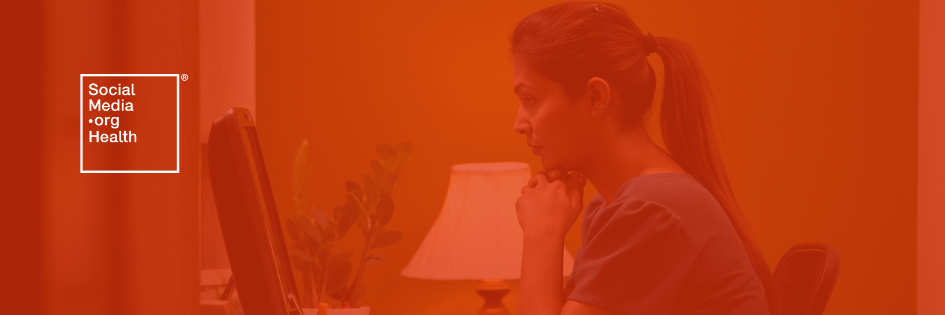Key takeaways:
- SocialMedia.org Health members gave insights on how you can keep your social media team engaged and mitigate burnout by prioritizing your efforts and blocking out time for personal well-being.
- Some helpful practices and resources to keep your team engaged include collaborating with different business lines for support and well-being and giving opportunities for your team to grow their subject matter expertise.
- Executives can provide additional support to keep your team engaged and mitigate burnout. Regularly meeting with your senior leadership teams helps to set clear boundaries on what your team can achieve.
Ensuring your healthcare social media team has the resources and tools to achieve their goals is critical for long-term success and managing the burnout many face running social media at large hospitals.
We spoke to several healthcare social media leaders on how they manage their teams and provide resources and executive support when faced with fatigue.
Best practices for staying engaged and avoiding burnout in hospital social media
Leverage your social media team for support
Lean hospital social media teams and limited resources cause overgrown responsibilities and the constant feeling of always being online. But for those with larger teams, having more people dedicated to social media efforts has proven helpful in mitigating burnout.
SocialMedia.org Health Member Kelly Macejewski, Senior Communications Specialist at Children’s Health, shared the benefits of having a larger team in healthcare social strategies.
“We are lucky enough to have more than one person on the team,” Kelly said. “Not everybody has that luxury, but that’s helpful for us where we can pull back [on campaigns] if we need to because we know we have that support.”
Make time for yourself to manage high expectations
In a confidential leadership conversation hosted by SocialMedia.org Health, members shared more insights on how they’re managing the burnout they face. It was noted running social media at a large hospital leaves many leaders feeling drained by internal expectations from stakeholders because they often have to be on the front lines facing public negativity.
Members also shared how they’re blocking out time for themselves in their busy schedules and treating those moments like meetings with executives to not be disturbed.
“We are lucky enough to have more than one person on the team. Not everybody has that luxury, but that’s helpful for us where we can pull back [on campaigns] if we need to because we know we have that support.”
— Kelly Macejewski, Children’s Health
Meet in person when you can and set clear boundaries and expectations for your hospital social media team
Kelly explained how having a standardized schedule for her team creates clear expectations of what they need to accomplish and how meeting in person helps maintain engagement.
“I think knowing when you personally need to make some changes or take a step back is helpful,” Kelly said. “When you can gather in person, I think that’s helpful. We are mostly remote, but we go one day a week to the office. I do think getting that break is important and not immediately walking from your room to your laptop.”
SocialMedia.org Health Member Laura Simson, Advertising and Brand Manager at Children’s Wisconsin, added how it’s beneficial to set clear boundaries on how much time you spend on social media, both professionally and personally.
“I think identifying opportunities where people can support you is important,” Laura said. “Delegating when you feel burnt out is important, or getting fresh eyes on your work.”
Resources to keep your hospital social media team engaged and build subject matter expertise
Study which healthcare social media efforts are worth investing in
Helping your team grow in their subject matter expertise can also keep them engaged. Kelly explained how studying social campaigns can do just that.
“I think it helps to do your own research on the industry in general,” Kelly said. “Not necessarily just healthcare social, but keeping tabs on healthcare in general. For example, my whole team meets once a week, but a few of us meet even more than that to go over trends and what’s happening in healthcare.”
“I think identifying opportunities where people can support you is important. Delegating when you feel burnt out is important, or getting fresh eyes on your work.”
— Laura Simson, Children’s Wisconsin
Collaborate with your internal teams and external partners for well-being
In another private leadership discussion for SocialMedia.org Health members, many social media leaders said their hospitals created employee wellness groups to combat burnout, stress, and other mental health issues. Others collaborate with local partners or influencers to bring awareness and education to the community.
Members added that collaborating across teams in your hospital is helpful, which lightens the workload. Some social media leaders said granting ownership of content-related tasks to people in other departments can be a great resource in managing the workload for their teams.
Benchmark with your peers to strategize your team’s priorities
Laura and Kelly are both SocialMedia.org Health members and meet every week to benchmark best practices for leading lean teams and managing priorities with social media leaders at the nation’s largest hospitals.
SocialMedia.org Health members also discuss strategies for social engagement, investment in paid social initiatives, using videos to promote healthcare priorities, and team size and structures.
If you lead social media at a large hospital or healthcare organization, you can apply to learn how SocialMedia.org Health can provide support to guide your strategy — and gain unbiased peer insights to set your team up for success.
